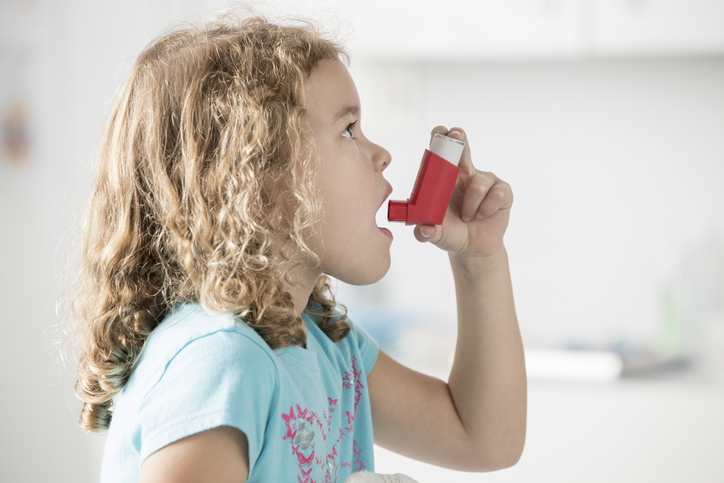Could Asthma Inhalers Affect Your Child’s Growth?

Asthma inhalers are a fixture in many children’s backpacks and the school nurse’s office. Often, a quick burst of albuterol means the difference between gasping through or acing the one-mile running test. Allergists and pediatricians rely on these colorful devices for their reliable treatment of asthma and reactive airway disease, which is reaching epidemic proportions among kids.
As with any medication, though, it’s important to know and manage the risks of asthma medication.
What are the risks?
For children, growth is everything, and some asthma medications unfortunately can stunt growth. Steroids like fluticasone and beclamethasone are meant to be taken as asthma preventers -- daily. But fluticasone (Flovent), for example, was found in a review of published research to reduce growth by half a centimeter per year in kids under 18.
And while a study of preschoolers found that daily steroids didn’t seem to affect growth, the extremely rapid growth in puberty, driven by hormones, could be the most susceptible to high levels of steroids.
What is a parent to do?
- First, discuss your child’s symptoms with your pediatrician or allergist. If your child experiences only seasonal symptoms, it might be smart to stick to seasonal steroid use only. For example, when it starts to warm up in the spring, your child could start taking the steroid inhaler daily to prevent the onset of seasonal attacks.
- Second, and just as important as the first option, explore possible treatment options. Some children with asthma may be successfully treated with leukotriene inhibitors (reduces inflammation) or with magnesium – and neither cause growth problems. Magnesium’s ability to open up your bronchi, which are the main passageways for air to get into your lungs, as well as anti-inflammatory effects make this a promising treatment option to discuss with your child’s doctor.
- Third, remove obvious asthma triggers. Do a little detective work and observe patterns in your child's wheezing. Change the flowers out front to cactuses. Consider using allergy pillow encasings and stripping the carpet. But there is one caveat: babies. If you have a baby in the house, or are pregnant, make sure not to create an overly sterile environment. Allergists are now finding that babies whose immune systems are exposed to animals, dust, farms, soil and pollen are less likely to develop allergies later in life. If you have a child with asthma and a baby or are pregnant, just focus on making modifications to the asthmatic child’s room and see if oral antihistamines help.
- Vitamin D may help. For example, a study, featured in The Washington Post, shows vitamin D may help. Researchers analyzed nine different studies, which involved a total of 1,093 children and adults with asthma, where participants were given either a daily vitamin D supplement (ranging from 500 to 1,200 IU daily) or a placebo (a blank), in addition to their regular asthma medication. After several months (ranging from four to 12), people who took vitamin D got fewer asthma attacks that required corticosteroids (medication used to reduce swelling of the airways). They were also 61 percent less likely to have a severe asthma attack that landed them in the ER and/or hospital, though it should be noted that this effect was seen mostly in adults. Day-to-day asthma symptoms were not really affected by the D, and no word on whether any of the participants had vitamin D deficiencies to start.
Enjoy Your Healthy Life!







